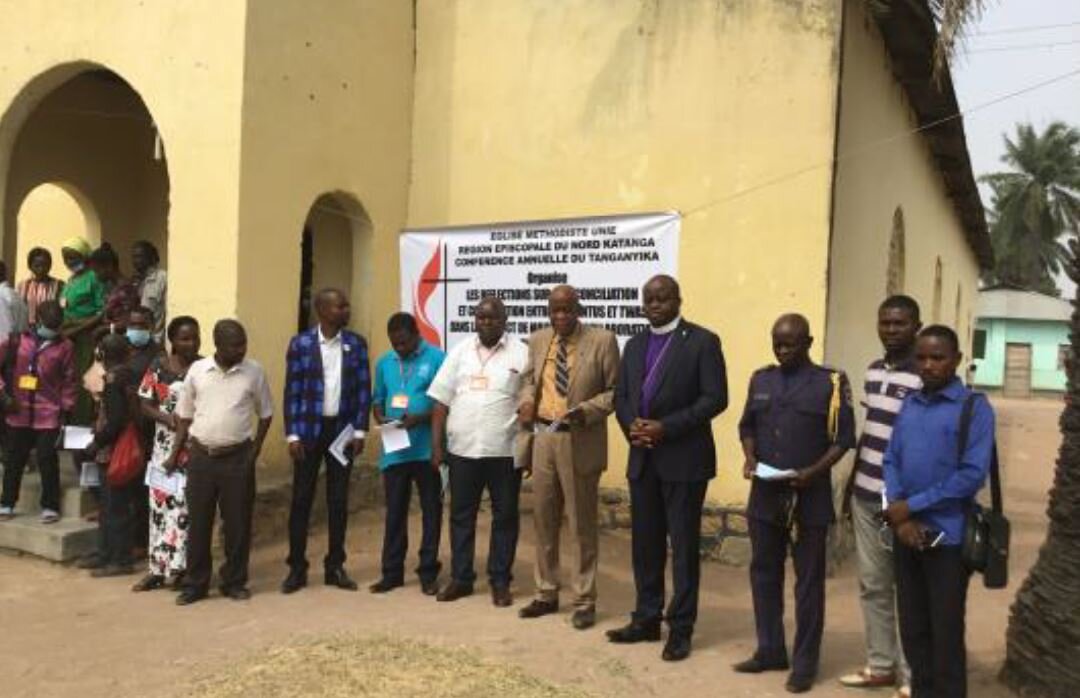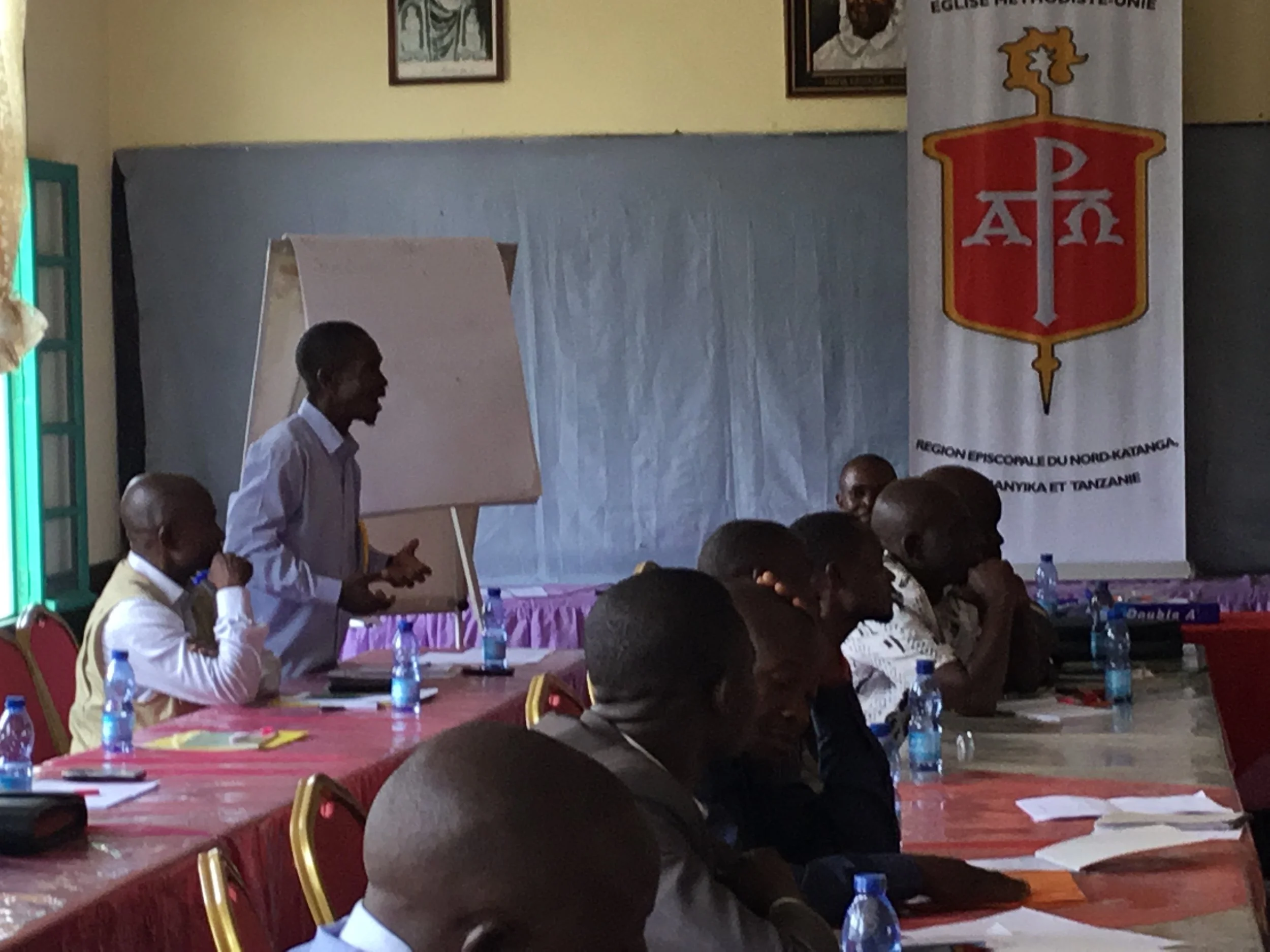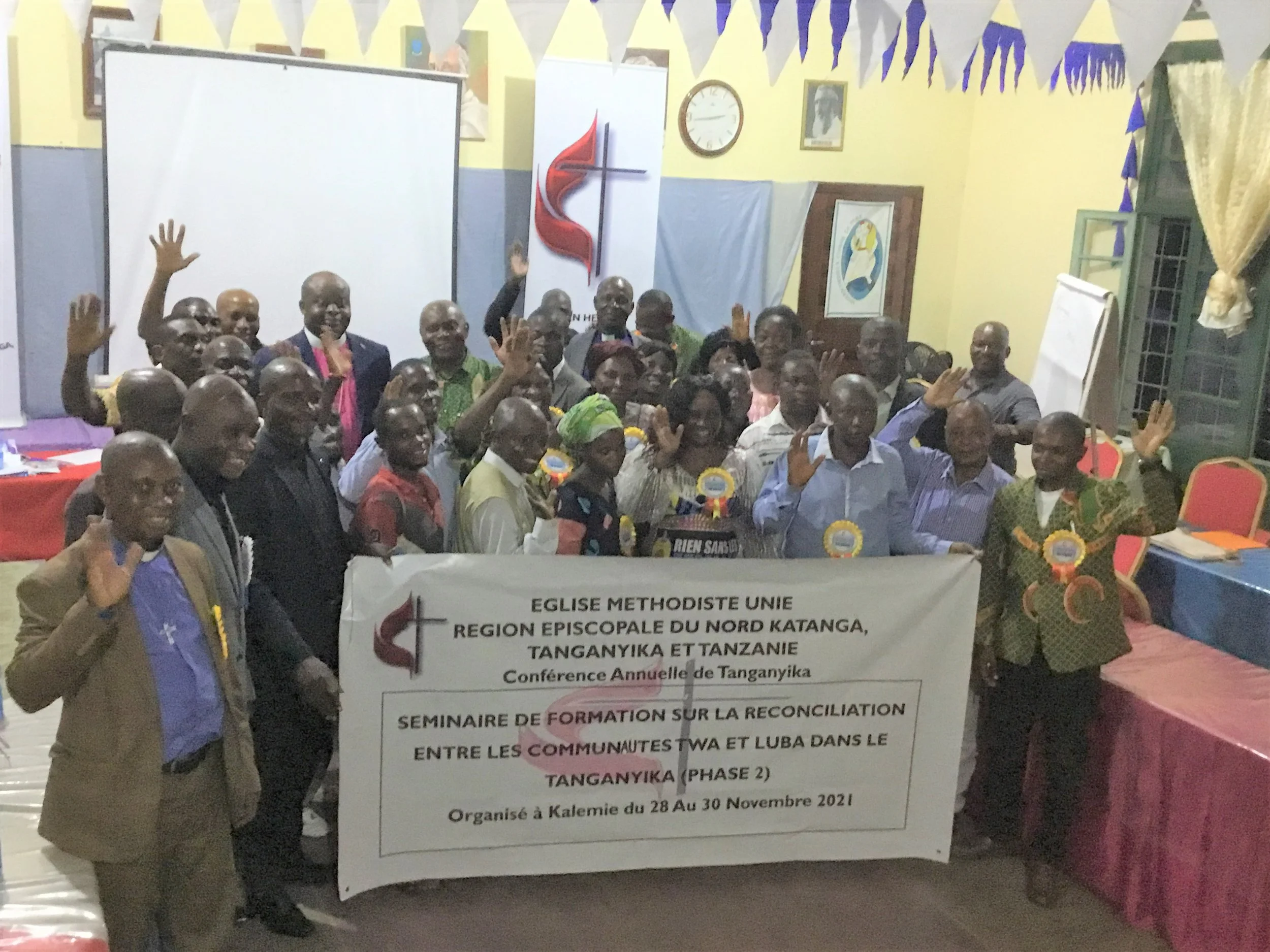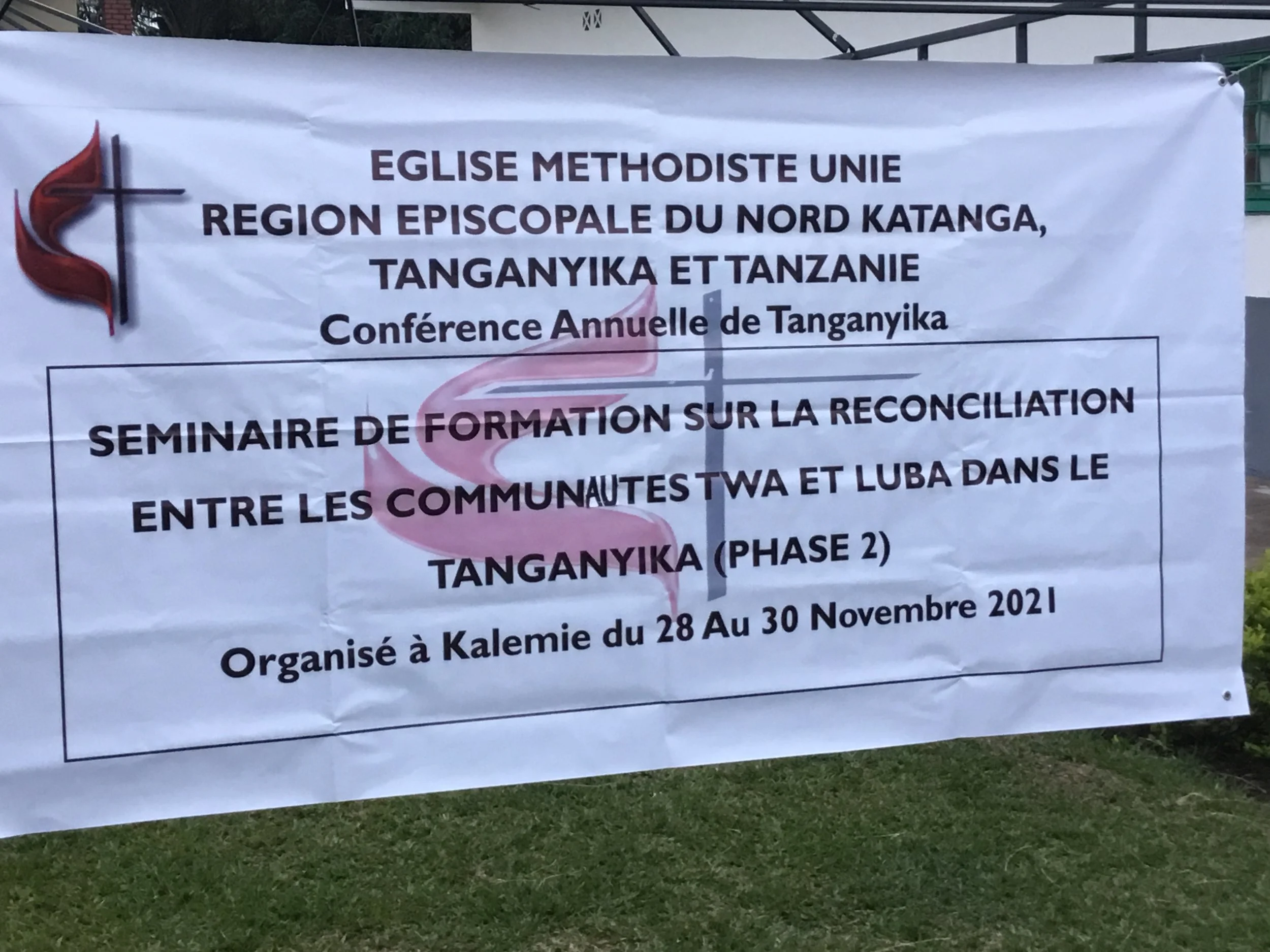Participants of the Reconciliation Workshop held August 9-10, 2021
Reconciliation Workshop Held in Democratic Republic of the Congo
Both clergy and laity reflect on reconciliation and accommodation of Baluba and Twa peoples in the Manono district of the Tanganyika Annual Conference, Democratic Republic of Congo.
Written By Betty Kazadi Musau
Sixty-two men and women met in early August 2021 to discuss, reflect, and workshop on the reconciliation and accommodation between the ethnic groups of the Baluba and Twa people.
Manono is one of the thirteen districts in the Tanganyika annual Conference. This area is being renovated after a riot and serious conflict between Baluba and Twa people.
Today, signs of the conflict remain: abandoned, destroyed houses during the recent times of violence. Step by step, the place is getting renovated, and mining companies are moving into the area.
Fear and mistrust are found in interpersonal relationships. Participants in the workshop were not only from Manono and the neighborhood but also internal displaced people were included.
Who has experienced War?
In his opening remarks, Bishop Mande Muyombo asked the question, “Who experienced war?” As a reply, half of the room stood up and some participants started sharing how they lost their land, food, and famine came in in the village. People in Manono went through a difficult time and became vulnerable.
In his speech, Mande invited participants to reflect on image of God in each other and self-identity. He quoted Desmond Tutu, angelical priest who promoted the Ubuntu theology, and urged Baluba and Twa to name such ideas in their own language as a way to learn from one another and reinforce accommodation and reconciliation.
Munga Mulongoy, a local lawyer, invited participants to reflect on their rights and duties. One cannot speak of rights without duties. They are reciprocal, Munga argued.
Learning from each other is a channel for relationship and dialogue.
Kongolo Mwamba, a Twa participant, said, “Land is very important. Land per se is the source of conflict. The idea is that; for twa, land belongs to the native people who are Twas. Land is very important for hunting, cultivation, and raising goats.”
“The hope is, to share the land equitably,” District superintendent, Tumaleo Kibongo said.
People created in the image of God should live in unity and diversity. All presenters invited participants to love one another, to share resources and avoid greed in order to prevent conflict among ethnic groups.
“Conflict hinders development,” the Rev. Irung Dib, said. Participants named different consequences of conflict. There is no free movement of people when there is conflict, no marriage between Baluba and Twa, no community work. The livelihoods of the Twa people were discussed and ways to accommodate each other were shared so that Twa quality of life improved.
Moving forward, participants requested for more dialogue, peaceful dialogue, communal activities, mediations between Baluba and Twa, inclusion of Twa in different sectors of life, fellowship, recreational activities like soccer.
Baluba and Twa pair off for one-on-one dialogue
A turning point for the community occurred during the workshop when two Twas, on behalf of the Twa people, asked for forgiveness publicly. Baluba participants also asked for forgiveness from Twas from all wrongs they have done to each other.
The United Methodist Church has prioritized improving the quality of life of the community members who struggle with tribal conflict: this reflection workshop is the fourth to be organised in Tanganyika Annual Conference. Redemptive relationships are improving. Participants resolve to fellowship together, create more together and collaborate in order to promote self-esteem, rights and duties in order to reduce poverty.
The area plans to hold round tables, activities of generating income, and public campaigns of outreach, and to continue creating community-based associations of respect to build peace, hospitality, and tolerance for all to live respectfully and peacefully in Tanganyika region.
This workshop was made possible by a Commission on Religion and Race Action Fund Grant.




Update: Follow Up Workshop Held in Kalemie
In late November 2021, a follow up workshop was held in Kalemie in the Tanganyika Annual Conference. Local representatives of both the Twa and the Baluba tribes attended, participating in discussions and learning about topics from specialists, including fundamental rights by lawyer Munga Mulongoy and violence against women presented by Rev. Dr. Betty Kazadi Musau. Bishop Mande Muyombo introduced the rationale of unity between the Twa and Baluba tribes and The Rev. Irung Dib led a centering session using candles, where he invited Twa and Baluba to live a life of light as light of the earth.














